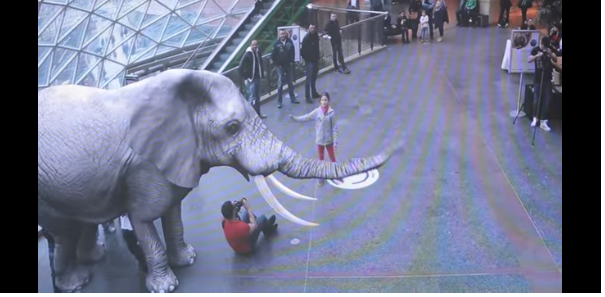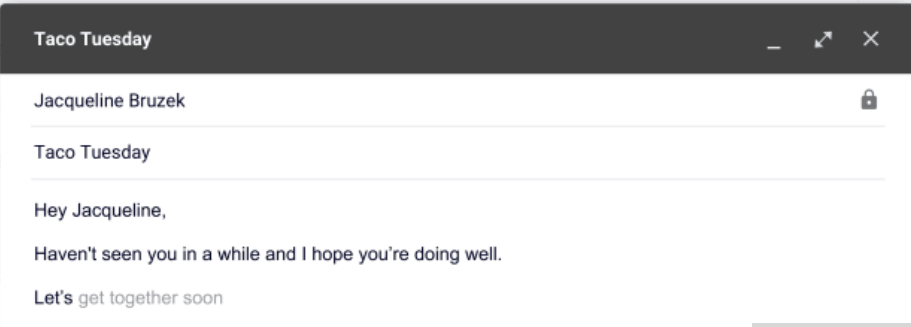If you’re a bit of a movie buff, you’ve probably already seen Artificial Intelligence (AI) in full swing with blockbusters such as The Terminator; The Matrix; I,Robot, Ex Machina, Stealth and 9, all showcasing advanced AI technology in different ways. It’s fascinating! And as computer systems become increasingly complex and continue to challenge our perception of what’s possible, let’s take a look at content marketing for AI tech.
AI and AR: What’s It All About?
Technology advances at a rapid rate, so it’s important to keep up with the various abbreviations to save being lost in the dark ages. As we’ve established AI stands for Artificial Intelligence – but what does this actually mean? Well, it’s basically a way of describing computer systems that demonstrate behaviours typically associated with human intelligence such as planning, learning, reasoning and problem solving – think Siri, Apple’s friendly, voice-activated virtual assistant.
Then there’s Augmented Reality (AR) which is designed to make the real world a little more, well, ‘cool’ with the help of computer-based technology. Pokémon GO caused a stir back in 2016 by allowing gamers to catch Pokémon in a real-life setting by combining a phone’s GPS with AR.
Increased Global Interest
There’s no doubt that both AI and AR will grow in popularity as companies work out how to easily incorporate such tech into their mainstream business model. Indeed, while only 15% of enterprises are believed to be using AI today, 31% are expected to incorporate it over the next year according to Adobe. The number of AI start-ups has already increased by 14,000% and with AI global spending predicted to jump from $2 billion a year in 2018 to $7.3 billion a year by 2022, it’s clear that AI is not going away any time soon – making AI marketing efforts increasingly important.
AI and Content Marketing: An Abundance of Opportunity
Both AI and AR are mind boggling in their own way. There’s so much to know and understand but when it comes to content marketing for AI tech it’s essential to be as creative as possible – after all, the products and systems you’re promoting are breaking boundaries. With this in mind, let’s take a look at some best practices that will set you off on the right foot.
Be clear and concise
AI and AR technology is new for many and therefore your marketing strategy must be clear and concise. Don’t be overly techy. While it’s important to communicated the true awesomeness of particular functionalities, you need to do so without completely baffling your audience. To do this, avoid overcomplicated language and long technology-based descriptions of how things work. Instead, cut straight to the good bits and focus on the benefits.
Bring your product to life
Do words alone do your AI/AR development justice or should you combine traditional marketing techniques with a dash of modern creativity? While blogs and articles are ideal for explaining product/system details and creating a buzz around a product launch, video content –particularly demo videos – are a great way to show off new and advanced technology and to bring innovative products to life. You could even go live via social media platforms such as Facebook, Instagram or Twitter to show your target audience exactly what they need to know. If you do the latter, however, don’t forget to promote your ‘go live’ efforts both in advance and nearer the time to generate interest.
Take your consumers on an interactive journey
If you’re a forward-thinking company ready to embrace AI and AR concepts to the max, why not incorporated this modern technology into your marketing strategy by taking your consumers on an imaginative journey from start to finish? Interaction is the key. The more they can be involved with your brand, the more likely they are to remember you and spread the word.
There are many things you can do from creating AR-enhanced apps to bringing AR-inspired demonstrations or AI systems to tradeshows and events backed up by hand-outs, brochures and other offline content.
Companies Who Are Nailing the AI/AR Dream
We’ve looked at a few best practices, so let’s take a peek at some real-life examples of companies who are fully embracing AI/AR content marketing.
1. Try Something New With Visa
Remember, content marketing is not only about the written word. It’s about thinking outside the box to create memories – and that’s exactly what Visa did when they launched their Try Something New With Visa campaign. In collaboration with Lemon&Orange software house, the company created an AR experience which allowed people to share a huge LED screen with projections of realistic animals such as giraffes, pandas and elephants.

Content marketing takeaways:
- Be bold – don’t be afraid to stand out from the crowd for all the right reasons
- Use your budget to create the best content possible. If you don’t have a lot of cash to throw around, think of a collaboration that might benefit both parties. For instance, combining someone else’s tech abilities in return for promotional expertise.
- Back up your campaign with well-timed PR activities and social media posts
2. IKEA Place
Imagine being able to see how furniture will look inside your home without having to buy it first. Well now you can with IKEA Place. This pretty nifty app uses Augmented Reality to help you decide which items will look smart in your pad before you part with your hard-earned cash. It’s essentially an extension of the company’s catalogue and therefore effectively takes marketing up a notch to enhance the consumer experience.

Content marketing takeaways:
- Compliment your existing materials and ensure all of your marketing efforts are on brand.
- Understand your target audience – if they’re desktop users rather than mobile app users, then you’ll need to tweak your marketing approach.
- If you don’t have the budget to create your own app, think of other ways to get people to interact. Perhaps look into cheaper options like Google Cardboard and think how you can create a cost-effective VR experience your consumers can enjoy.
3. Google and AI
When it comes to content marketing for AI, Google has adopted a clever angle. Their focus is on ‘advancing AI for everyone’ in a bid to solve ‘real-world problems.’ This campaign is therefore deliberately inclusive in a bid to keep people interested in future developments from the tech giants.

Everything is explained clearly and concisely through content. With regards to the latest I/O developer conference which ran from 8-10 May 2018, Google published a host of detailed articles and intriguing video content. Key topics covered included AI advancements in the medical sector as well as time-saving products across Gmail, Photos and the Google Assist such as Smart Compose.
The Google Blog currently gives a clear demonstration of how Smart Compose works. Essentially, by understanding the context of an email, this AI system can help to draft emails from scratch.

Content marketing takeaways:
- Be clear and informative explaining what you’ve already achieved and what you aim to achieve in the future.
- Showcase the benefits of your products/systems.
- Take a multi-pronged content-marketing approach by updating your website, blogging and releasing video to multiple platforms.
Need content marketing for AI tech? Speak to the Contentworks team today for more information. As a content and social media marketing agency, we understanding the diversification of marketing in 2018 and will ensure your efforts are on point.
At Contentworks we always credit our sources. thanks to the following sites for providing awesome information
https://towardsdatascience.com/15-artificial-intelligence-ai-stats-you-need-to-know-in-2018-b6c5eac958e5
https://www.quora.com/What-are-some-of-the-latest-marketing-campaigns-using-augmented-reality
https://insights.newscred.com/augmented-reality-content-marketing/
https://www.blog.google/products/gmail/subject-write-emails-faster-smart-compose-gmail/
